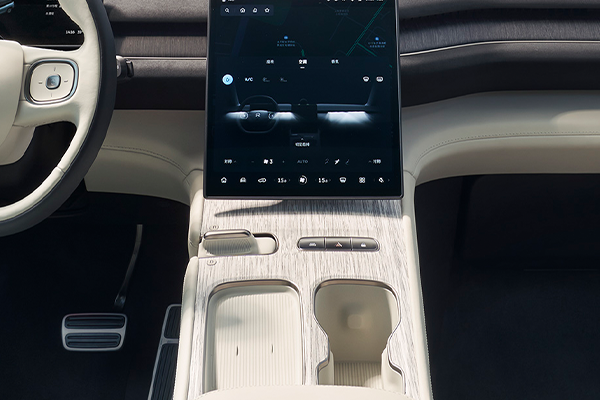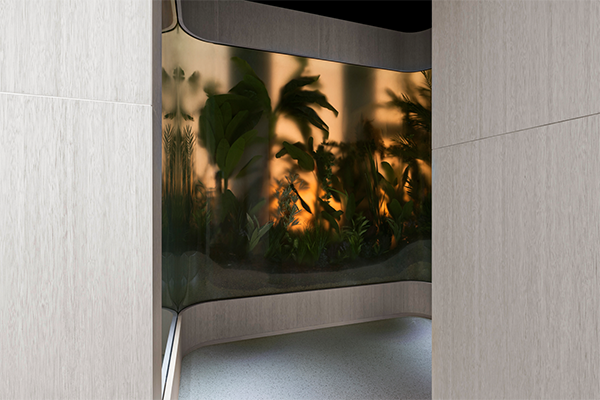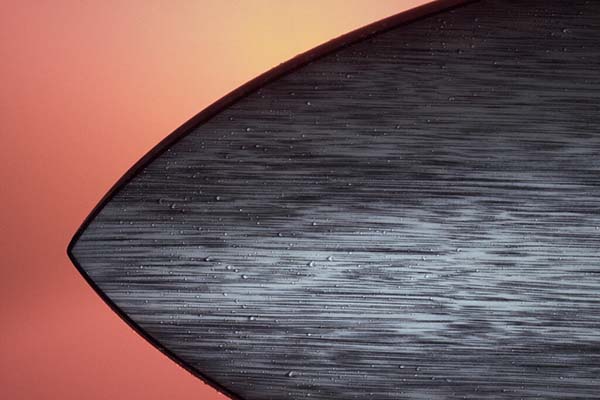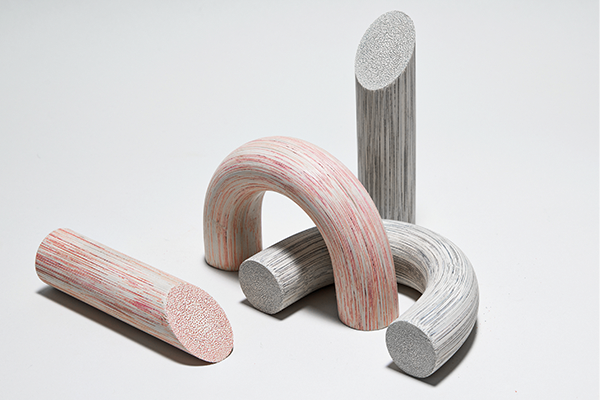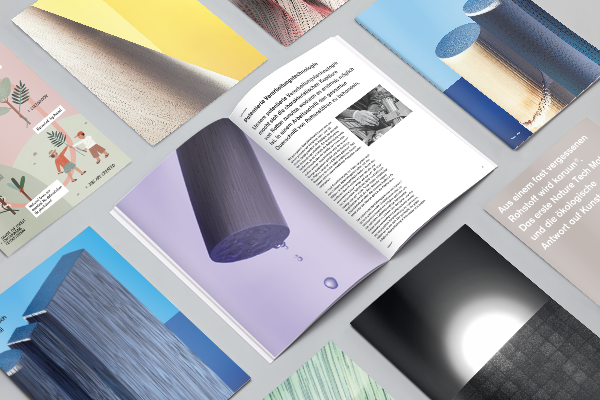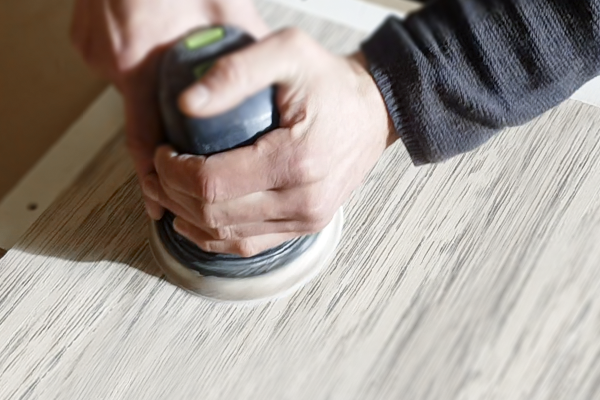However, there is currently no comprehensive rattan-cultivation management tool that allows the material quality to be continuously optimised and the supply chain to be traced from start to finish. Digital traceability plays an essential role in the responsible economic growth of karuun® though; optimised, scalable rattan farming models can be developed with a tool of this kind.
The RattanTrace app will be launched for this exact purpose. Among other benefits, RattanTrace will play an important role in the creation of valid CO2 emission credits in order to give companies or countries, such as Indonesia, the opportunity to achieve their climate goals while combining economic and environmental interests. In addition, the app will also allow us to better measure the sustainable and social effects of our work as well as to identify and capitalise on new areas for improvement.
Furthermore, the path rattan takes from the jungle to its place as a nature tech material karuun® can be traced – for maximum transparency from harvest to use as a nature tech material.
As part of develoPPP, a funding program of the Federal Ministry for Economic Cooperation and Development (BMZ), we aim, together with the VIVERE Group and the Deutsche Gesellschaft für Internationale Zusammenarbeit (GIZ) GmbH, in the next stage to set up a performance system that applies to all stakeholders tailored in the rattan supply chain. For instance, rattan farmers would be able to use the app to access information regarding their profits with and for karuun®.
We’re working on this with an integrated technology company that offers tailor-made software solutions and services for end-to-end business processes.
100% traceable – from independent small farmers to karuun® customers
Outline of the process chain for our RattanTrace app environment
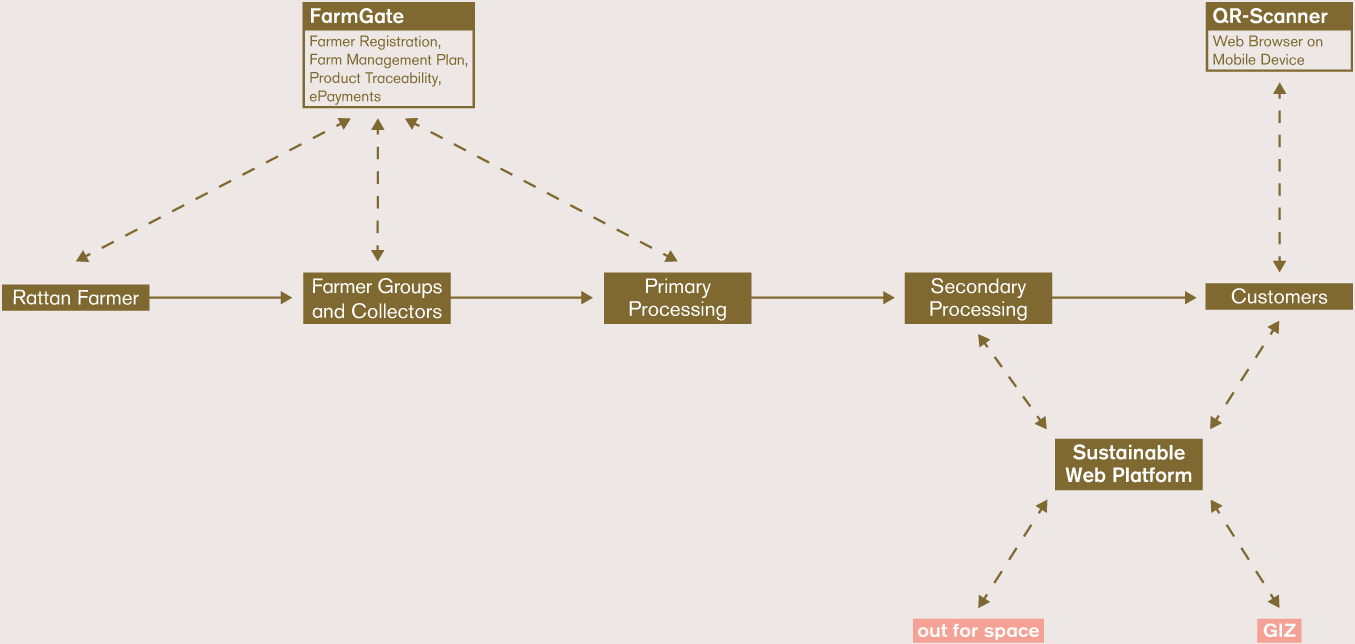
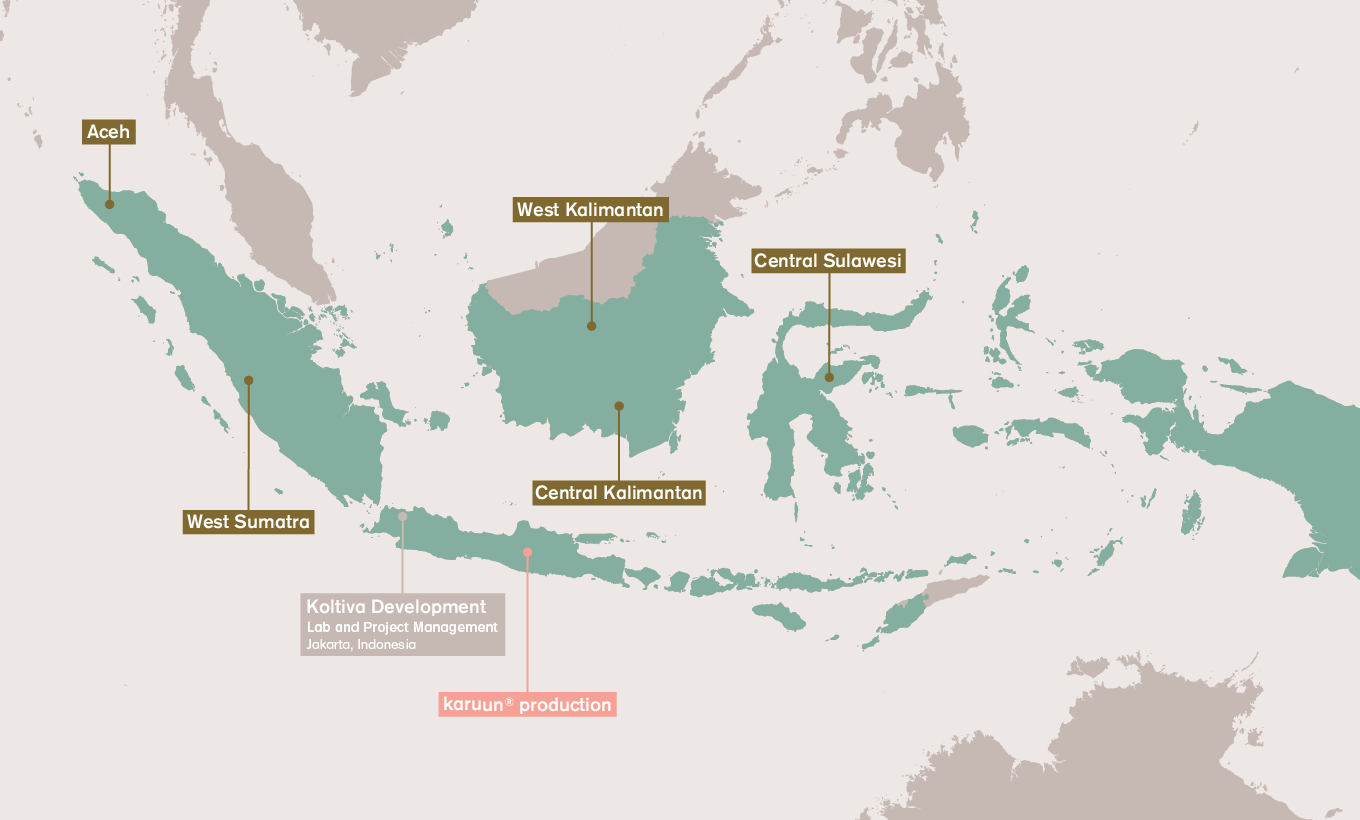
karuun® RattanTrace in collaboration with GIZ
The first planned locations for the RattanTrace app: West Kalimantan, Central Kalimantan and Central Sulawesi
Protecting primary and secondary forests with sustainable rattan cultivation
Buying rattan products protects the environment – strange as it may sound at first. The management of rainforests, where rattan thrives, is an efficient instrument in preserving secondary and primary forests, absorbing CO2, protecting biodiversity and making global land use more sustainable.
Carbon storage Average values
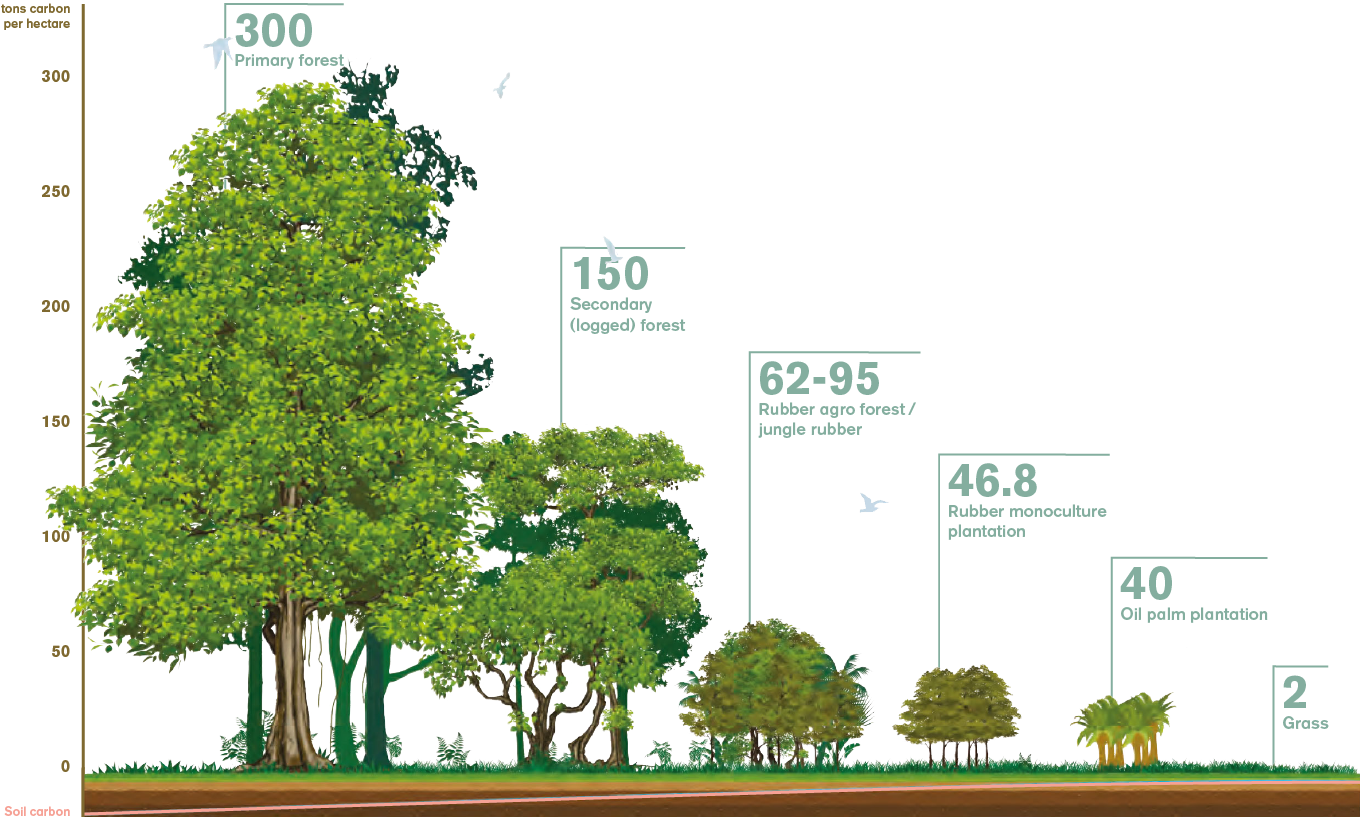
Source: Opportunities for Avoided Deforestation with Sustainable Benefits. An Interim Report by the ASB Partnership for the Tropica Forest Margins. 2007. Swallow, B, M. van Noordwijk, S. Dewi, D. Murdiyarso, D. White, J. Gockowski, G. Hyman, S. Budidarsono, V. Robiglio, V. Meadu, A. Ekadinata, F. Agus, K. Hairiah, P.N. Mbile, D.J. Sonwa, S. Weise. ASB Partnership for the Tropica Forest Margins, Nairobi, Kenya.
By consciously cultivating rattan we can finally follow through on our assurances to protect tropical forests and, to a certain extent, we can reinvent the modern circular economy too. As well as ultimately supporting the livelihood of many millions of people and being home to around two thirds of earth’s plant and animal life, it is also estimated that the rainforest absorbs around 250-300 billion tons of CO2 per year. That’s around 90 times more than yearly man-made greenhouse gas emissions.
Rattan relies on this biodiversity. It does not grow in monocultures and naturally forms a symbiosis with neighboring trees; it needs the rainforest to thrive. As a renewable raw material, rattan grows from tree to tree like a liana and is harvested in the most environmentally friendly way: by hand by local farmers. By buying and using rattan for karuun®, we increase the importance of tropical forests, create a long-term stable income for the farmers and thus create an incentive to conserve forest resources.
“Rattan use and rainforest preservation in Indonesia harmonised very well in the past. Now, digitalisation both allows us to measure this properly and presents us with a renewable alternative to plastic at the same time. The local rural population plays a key role here as they must benefit directly from the knowledge being passed down and from preserving biodiversity and our planet’s carbon stock.”
Julian Reuter, co-founder
Let’s Reanimate Rattan
The rediscovery of a bio-economic material: As part of the scope of the develoPPP.de programme, we’re working together with our Indonesian partner VIVERE Group and GIZ to boost sustainable rattan production for completely new industrial and design applications.






